2nd Semester of School Year Starts Mainly with Classroom Lessons
ZAGREB, 10 Jan 2022 - The second semester of the 2021-2022 school year began on Monday in Croatia, with face-to-face classes in most schools, however, online classes are being organized in 24 schools this week in eight out of 20 counties due to current epidemiological developments.
Of those 24 schools, seven are in Zadar County, five in Split-Dalmatia County, and four in Šibenik-Knin County and Vukovar-Srijem County each.
The Buje-based grammar school in the Italian language is organizing mixed-type lessons.
On 7 January, Education Minister Radovan Fuchs said that primary and secondary school students accounted for 8.7% of coronavirus cases and that this was an argument in favor of schools staying open, adding that no county had requested switching to online classes.
Speaking on Croatian Television, he said not even counties with very high COVID numbers had opted for closing schools, adding that the impact of online classes "is very hard" on students.
To read more about lifestyle in Croatia, follow TCN's dedicated page.
University of Zadar Develops Innovative Solutions for Ravni Kotar Tourism
January 10, 2022 - The project Take It Slow - "Smart and Slow Tourism Supporting Adriatic Heritage for Tomorrow" is a strategic project implemented within the operational program INTERREG Italy - Croatia 2014 - 2020, which is carried out by the Dubrovnik-Neretva County, and the University of Zadar as one of the partners.
The total value of the project is €3,764,695.71, with the University of Zadar having a budget of €260,034.00. The goal of the University of Zadar, as one of the partners in the Take It Slow project, is to create preconditions for the development of innovative eno-gastronomic tourism products based on the concept of the so-called “Slow food” from Ravni kotari, reports HrTurizam.hr.
"This project is designed to strategically manage and promote the Adriatic as a sustainable, green, and smart European tourist region, through the establishment of a value chain in tourism based on the principles of smart specialization. The Adriatic Sea is surrounded by many small communities, both on islands and in coastal and inland areas, and the lifestyle of these communities is still mostly in harmony with the environment and has remained authentic and based on traditional knowledge and skills," concluded the University of Zadar.
The project will develop solutions for the management of micro-tourist destinations, to encourage local communities to actively engage in finding solutions related to the impact that tourism has on them, but also to preserve their natural and cultural heritage and lifestyle.
“The project will also develop tools that will help respond in a timely manner to the demands of the tourism market, in order to balance the seasonality of tourism activities in natural and cultural heritage sites. As the project is carried out in collaboration with scientists and the local community, it will be based on different lifestyles research and different aspects of tangible and intangible and cultural and natural heritage in micro areas. This is exactly the role of the University of Zadar, as a research-oriented educational institution that connects scientific research and projects", states the University of Zadar.
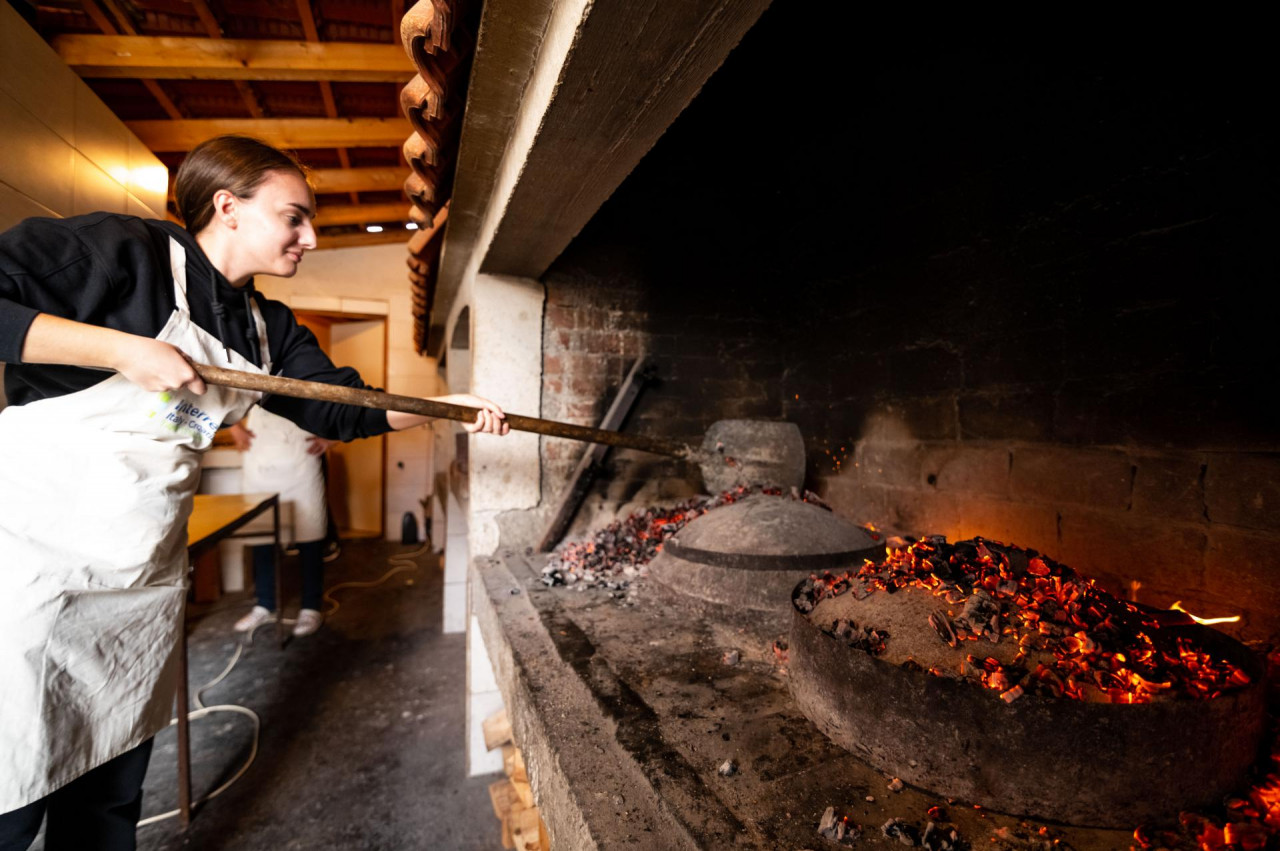
Photo: Toni Opacic
The University of Zadar, through the Take It Slow project, decided to focus on the micro area of Ravni kotari, with special emphasis on tangible and intangible heritage and natural and cultural heritage related to the traditional gastronomy of the area.
This tourist destination within Zadar County has an exceptional potential for growth, as it is characterized by a unique and very rich attraction base. The development of this area can contribute to reducing seasonality, but also relieving tourist destinations in the coastal area of Zadar County, as there are opportunities for the development of various tourist products that are not based on sun and sea resources, especially in the form of so-called slow eno-gastronomic tourism.
Throughout this area, home-grown ingredients are grown and from which traditional dishes are prepared, whose recipes have been preserved since ancient times. Prisnac, priška, and vara are old dishes of this region.
Prisnac or shepherd's cake is a traditional dish made from ordinary dough - flour, water, and salt, and the mixture is cheese, eggs, and shellfish and baked under the oven. Ravni kotari also has the oldest tune "orzanje" (orcanje) sung and played on the oldest traditional instruments in the area of Bukovica and Ravni kotari. Precisely such dishes and the experiences associated with them are the basis for the development of quality slow, green, and sustainable tourist offers, not only in the area of Ravni kotari, but the wider Zadar region.
“Active involvement of the local community is the basis for achieving the defined goals of the project, so each project partner has created a database of key regional stakeholders involved in value chains in tourism and formed advisory local stakeholder groups relevant to the selected micro-tourist destination. In addition, a database of examples of good practice was created and a list of organizations operating in accordance with the principles of the so-called slow tourism at the project level”, the University of Zadar points out, whose working group developed a methodology for assessing cultural and natural heritage and analyzing the strategic framework, a methodology for developing smart action plans, which is adapted for use by all project partners. These documents serve to help develop a smart strategic framework in tourist destination management.
In order to strengthen the capacity of various stakeholders involved in the implementation of project activities in selected pilot areas, the University of Zadar organized three workshops on smart specialization in green, the so-called slow and sustainable tourism, in which over 200 participants participated. Participants were introduced to the concept of smart specialization, frameworks for business innovation, and many other concepts needed in the value chain in tourism, to be able to actively participate in the decision-making process in the destination and become a driver of competitiveness in their destination.
Preparations have begun for the implementation of thematic scientific research in the area of Ravni kotari with the aim of determining the strengths and weaknesses of the eno-gastronomic offer of the area, as well as opportunities for the development of tourist offer based on such resources. After conducting the research, the necessary data analysis will be performed, and the obtained results will be presented to key regional stakeholders, the advisory local group of stakeholders from the practice of Ravni kotari, but also to other interested public.
In October, professors and students of the University of Zadar and their guests had the opportunity to get acquainted with the production and preparation of traditional food and beverages in Ravni kotari.
Since the Take It Slow project seeks to improve accessibility, but also to promote the slow tourist experience of tangible and intangible heritage, the program began with a tractor ride to the vineyards and olive groves of the Butić family, and students had the opportunity to show their competitive spirit in the grape harvest, pulling ropes and carrying eggs in a spoon. Students and professors then showed their agricultural skills in planting seedlings of one of the "three Graces of Dalmatia" - figs, fruits characteristic of this region.
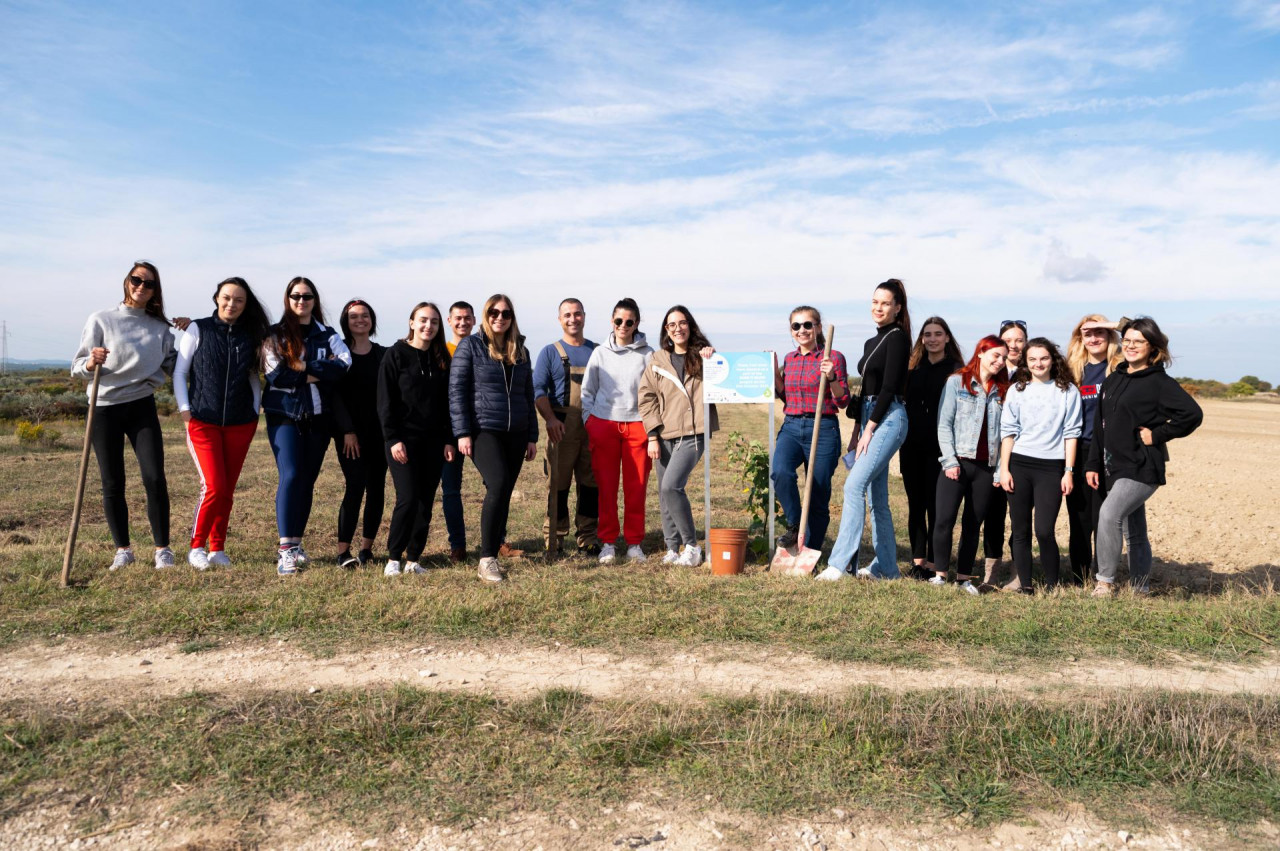
Photo: Toni Opacic
The University of Zadar, as a scientific institution, also has an advisory role in the implementation of research conducted by other project partners. The definition and development of instruments and policies for the diversification of the tourist offer based on natural and cultural heritage, measures for testing these policies, as well as their monitoring systems, which will be implemented at the level of the entire project partnership.
Next year, cooking workshops are planned based on traditional recipes and foods from the area of Ravni kotari, in order to strengthen the capacity of the catering tourist offer in Zadar County. A study trip to the Basque Culinary Center is also planned, with the aim of improving the knowledge of key stakeholders in the field of gastronomy in tourist destinations.
The goal of all planned events is to strengthen the capacity of stakeholders in the micro area of Ravni kotari, but also the wider Zadar County so that the local community is actively involved in decision-making processes in these areas, and to develop these areas into sustainable, green and smart tourism destinations where a value chain in tourism will be established based on the principles of smart specialization.
For more about the Zadar region, be sure to check Total Croatia's guide.
For more, check out our dedicated travel section.
Čakovec High School Teachers Welcomed Students in Original Way (PHOTOS)
January 10, 2022 - On the first day of the second school semester, Čakovec high school teachers dressed up as famous movie and television characters.
As was well established in the previous weeks and then recently confirmed by the Minister of Education, Radovan Fuchs, school classes would return today to start the second semester of school. Despite the record increase in positive cases of coronavirus, especially after the Christmas and New Year celebrations and in the midst of the omicron variant, the Ministry of Education confirmed that the classes would be given face-to-face throughout the country. Until now, they reported, they had not received any requests from any school to teach virtual classes. This exception would be given to those schools that, due to the omicron variant, had limited staff to teach classes from the classroom.
The news is good for the Ministry itself, which ensures that face-to-face classes are essential to ensure quality education and for the emotional well-being of students, something that surely sounds just as good for teachers and parents. However, we wonder, how do students feel about it?
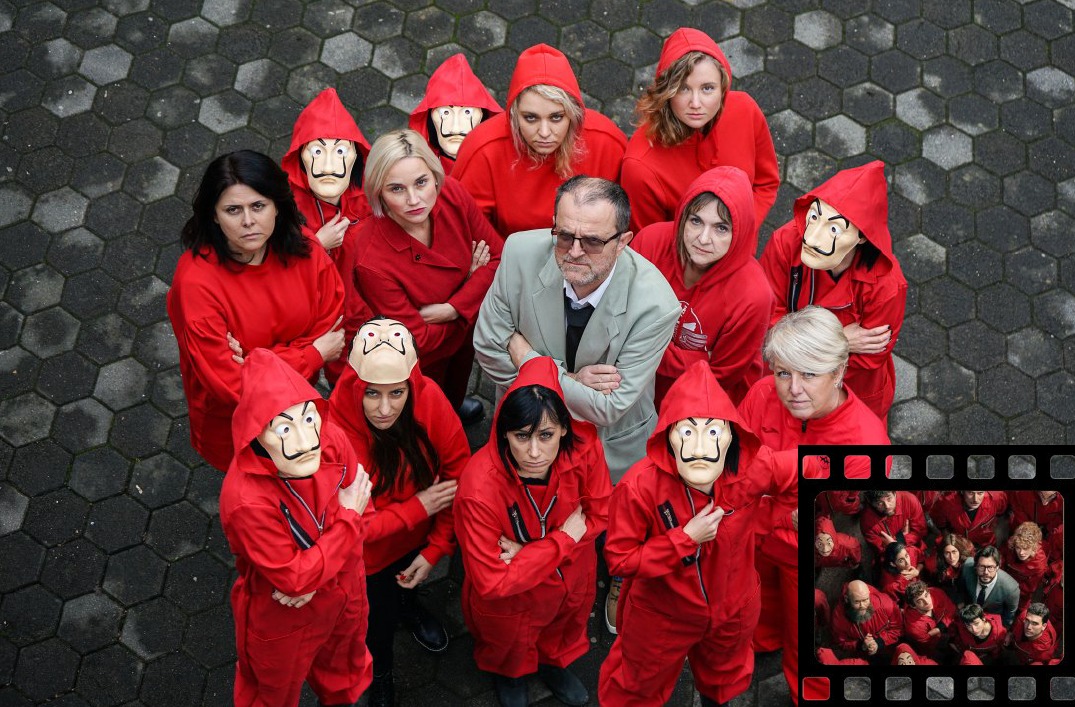
When it comes to high school students, we imagine that after the Christmas and New Years' break, they wish they were still resting at home. The chilly temperatures in the middle of winter can be a turn-off for getting back to school. However, as eMeđimurje reports, Čakovec high school teachers have come up with a great idea to receive their students in the best way and raise their spirits to face a new school semester.
The teachers of the Josip Slavenski High School in Čakovec came up with an interesting idea and delighted everyone. In an original and funny way, they wished the students a happy return to school after the winter holidays. Teachers from the Čakovec Gymnasium decided to cosplay some of the most famous characters in film and TV series.
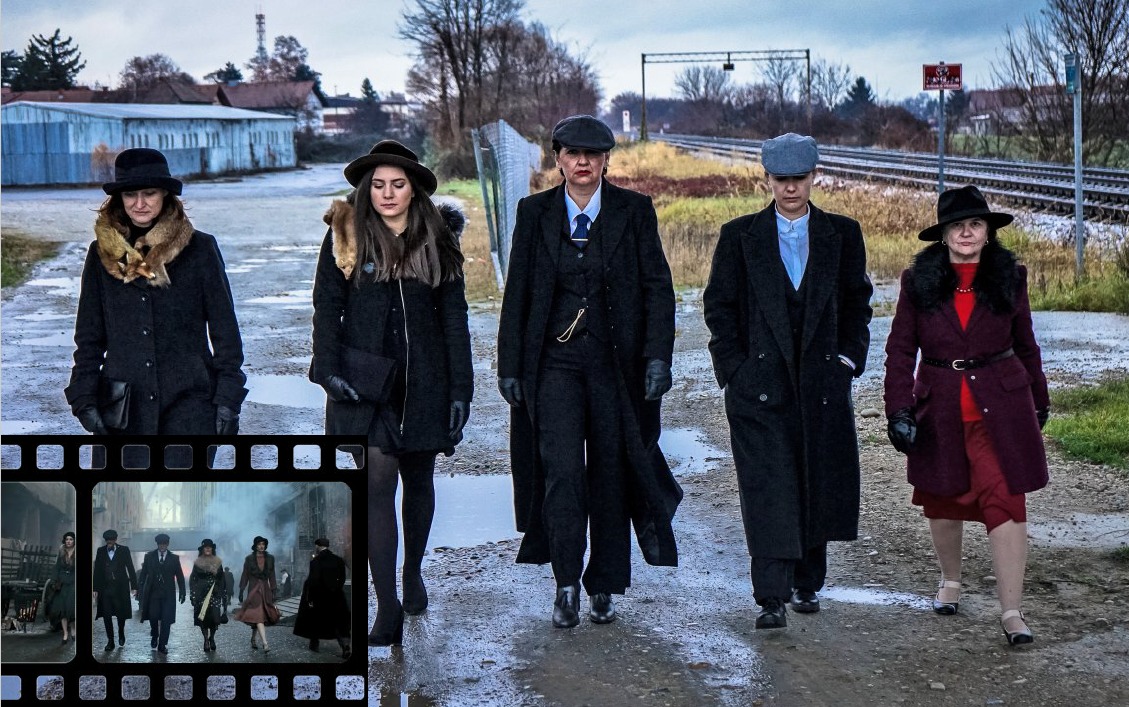
''ET still wants to go home, the blonde from Harvard breaks stereotypes, Peaky Blinders spread fear and trepidation... No, don't be afraid, you're not stuck on a holiday binge! Your teachers, disguised as heroes from famous films and series, are waiting for your return. They want to show you that, despite all the challenges they pose to you, they are just people, cheerful, and well-intentioned. Welcome back to school in 2022 and we wish it will be a great year for everyone!'', reads the message for their students.
See below for more of the costumes and characterizations made by Čakovec high school teachers from the Josip Slavenski gymnasium:
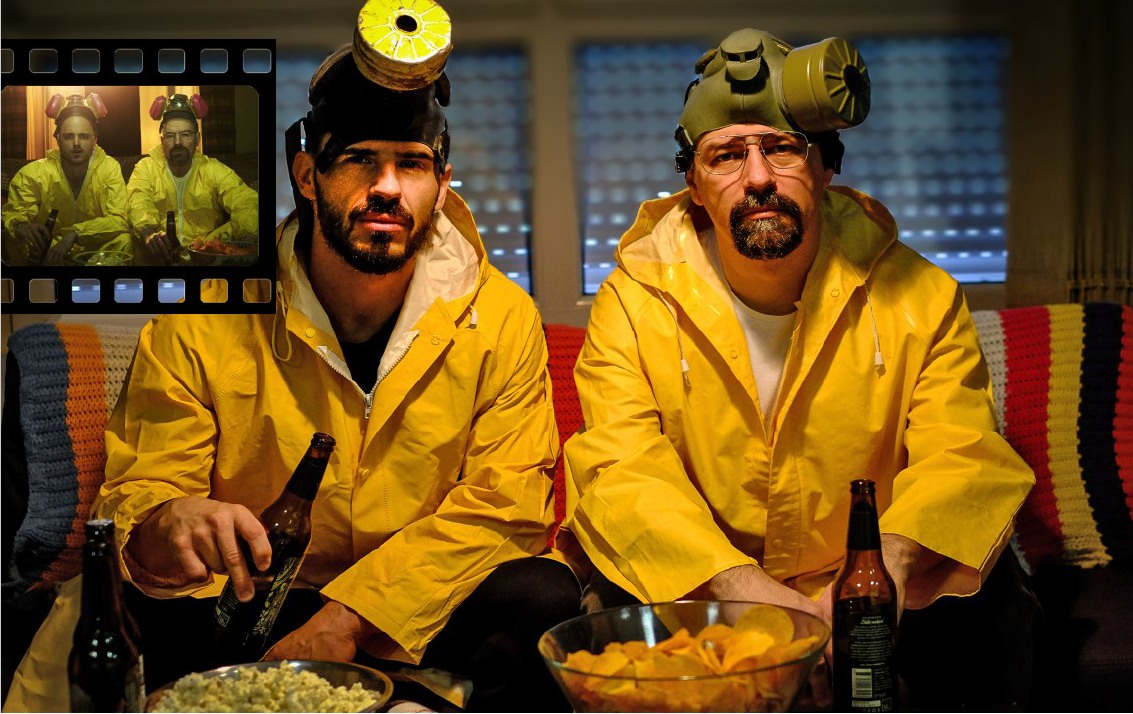
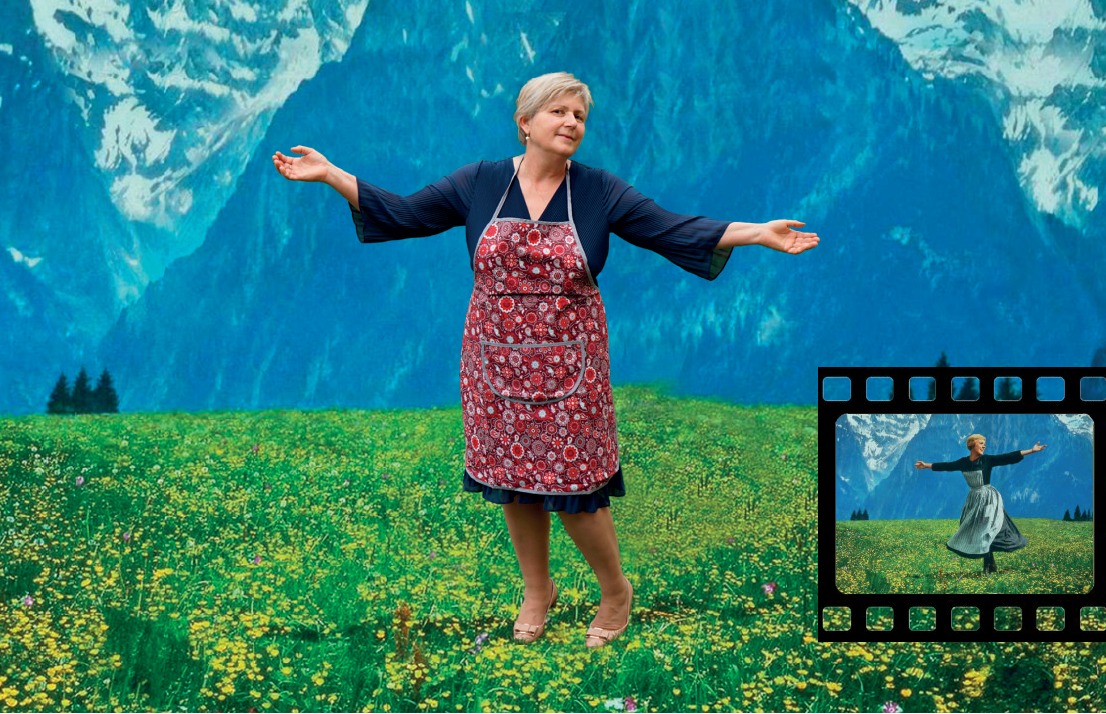
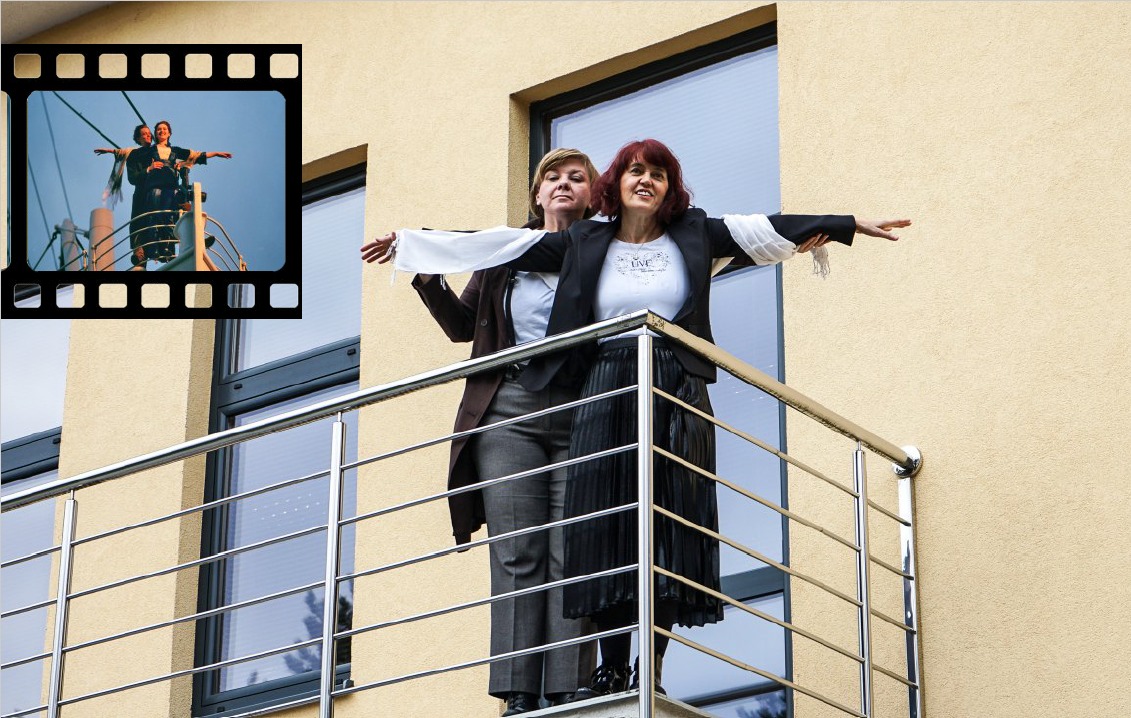
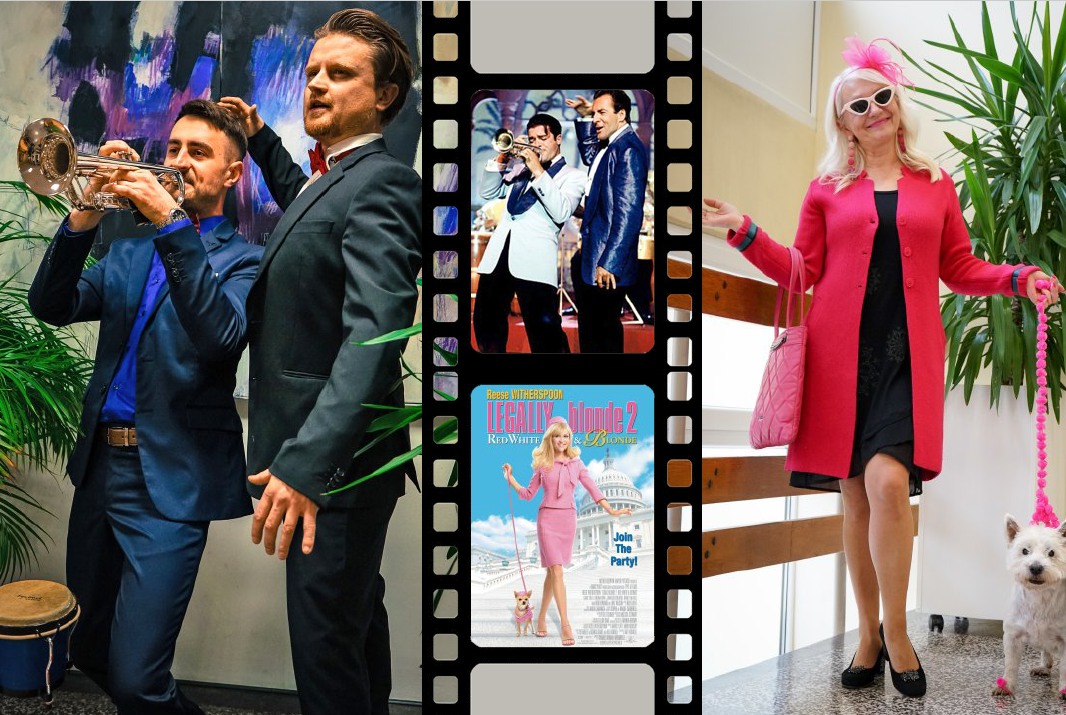
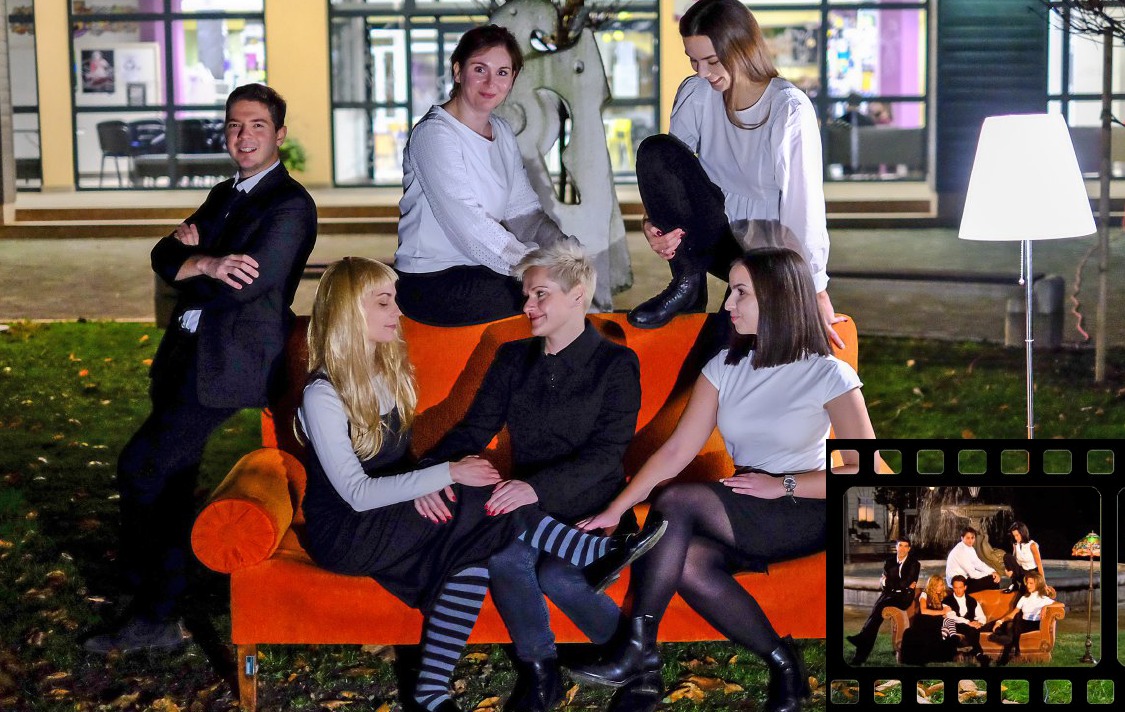
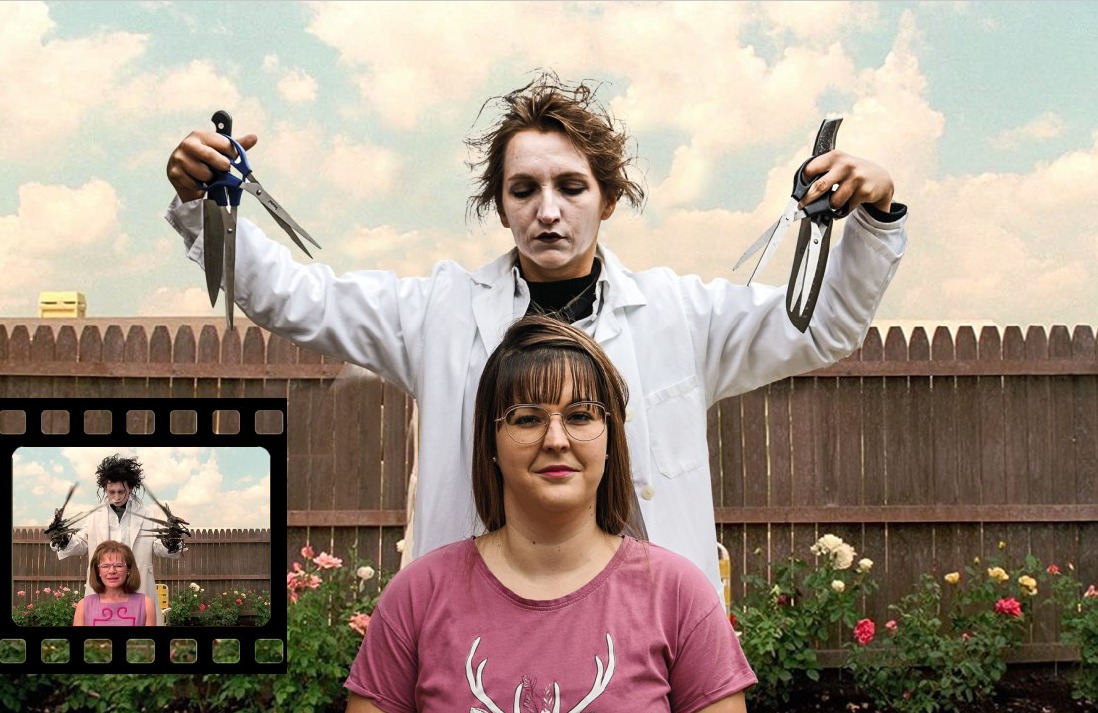
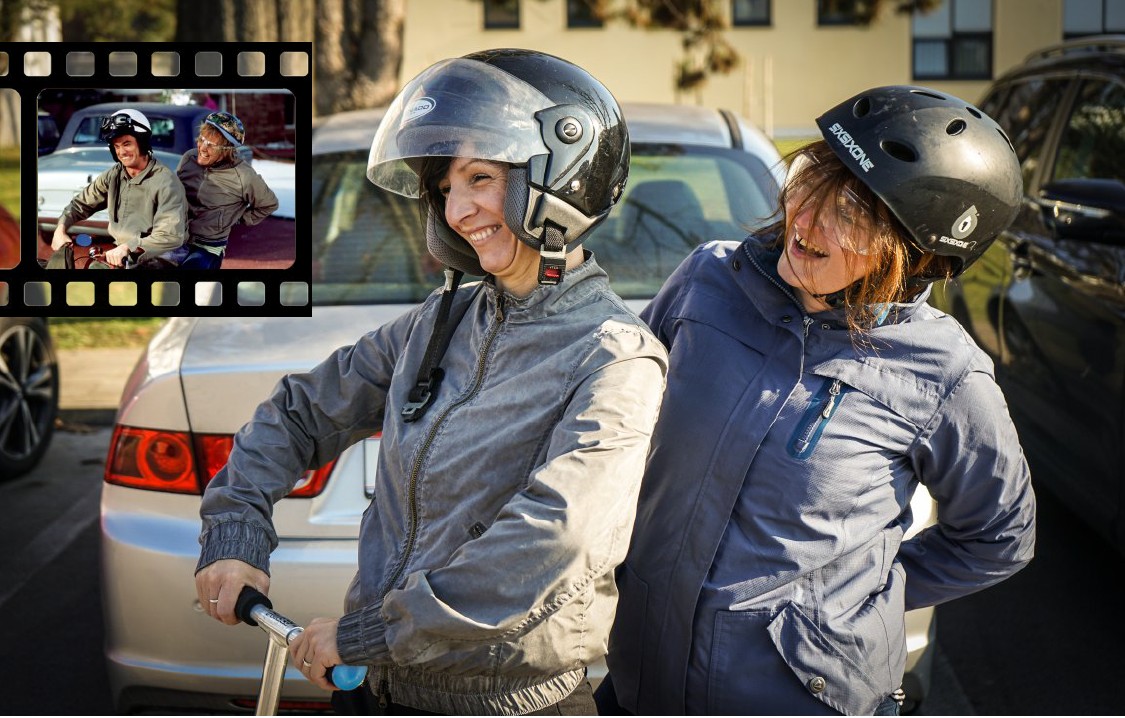
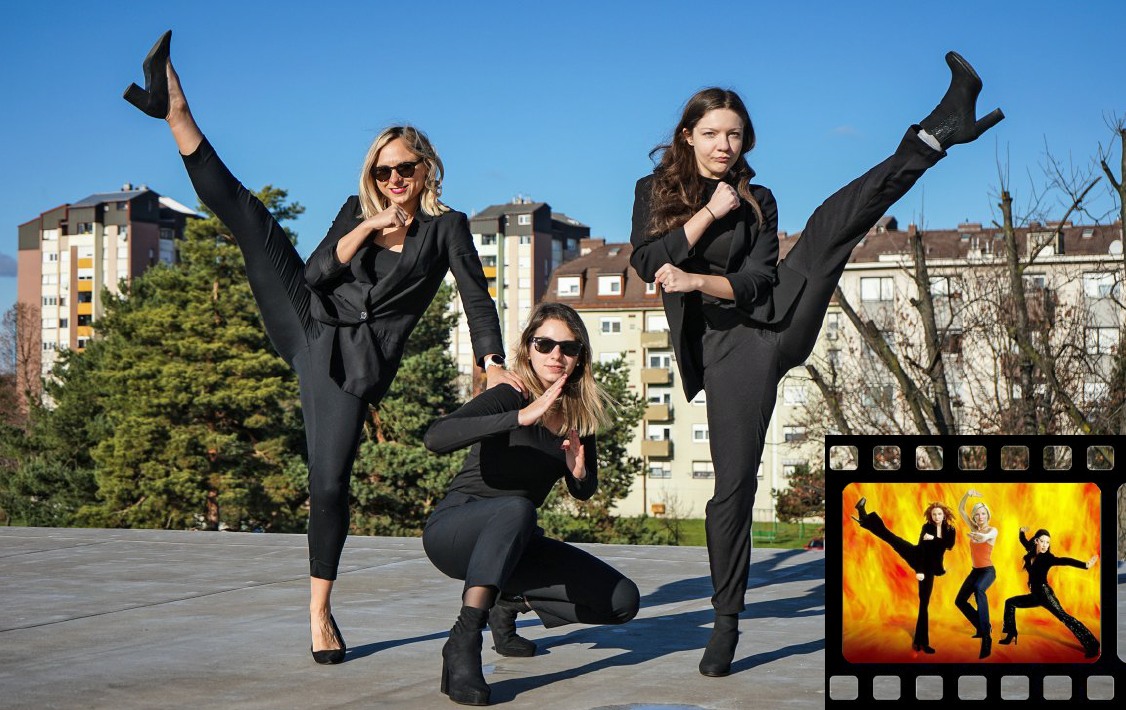
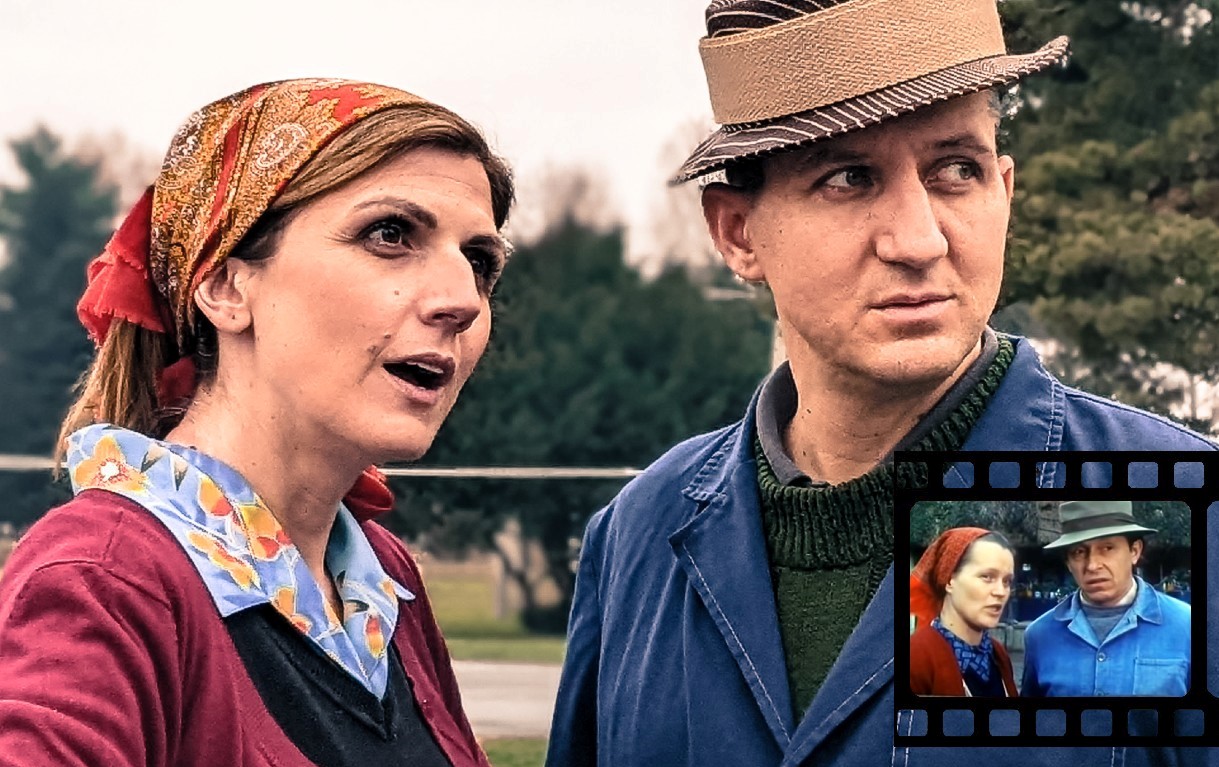
To read more about lifestyle in Croatia, follow TCN's dedicated page.
Plenković: Construction of Access Road to Kozjak Tunnel to Start Soon
ZAGREB, 10 Jan 2022 - During his visit to Split on Monday, Prime Minister Andrej Plenković said that construction would soon begin of the access road to the €133 million Kozjak tunnel and that project should relieve traffic jams at the entrance to this biggest Croatian Adriatic city.
"We spoke about the Vučevica-Kozjak-Kaštela project which is important for the construction of a tunnel valued at HRK 1 billion (€133 million), and soon construction works will begin for the road from Vučevica," the premier said after meeting with Split-Dalmatia County Prefect Blaženko Boban.
According to Plenković, Transport and Infrastructure Minister Oleg Butković and the Hrvatske Ceste (HC) road management company's director, Josip Škorić, met with Boban today to discuss the road infrastructure projects and access routes to Split aimed at lessening traffic jams during the tourist season.
Plenković added that other infrastructure projects in the county were also discussed, including a bypass road around Omiš, an overpass at Širine in Solin, and the Mravinci-Stobreč road.
PM said that investments in Adriatic ports had also been discussed, referring to them as the renaissance of the Croatian coast with investments that had not occurred in that county for decades.
"The development of traffic and port infrastructure is boosting the economy and tourism," he said.
Plenković expects efforts to be made in Split-Dalmatia County "to step up the rate of immunization and adherence to epidemiological measures in an effort to put the spread of COVID under control in this fifth wave of the pandemic."
"We have also mulled over preparations for the following tourism season," he said.
Plenković recalled that during the COVID pandemic the government had so far set aside HRK 1.5 billion (€200 million) and saved 75,000 jobs in the county, with aid for 15,000 enterprises.
"The government's policy obviously contributed to last year's tourism season and GDP growth which will certainly be in the double-digits this year," he said.
He added that the government had concluded agreements for more than HRK 7 billion from European funds for projects in Split-Dalmatia County.
Prefect Boban underscored that preparations for large infrastructure projects in the county have been completed and in particular, he referred to a new road from Solin to Omiš which is one of the most congested thoroughfares in Croatia during the tourist season.
Split Mayor and Plenković discuss projects worth €400 million
PM Plenković also held talks with the mayor of Split, Ivica Puljak, on infrastructure projects, worth three billion kuna, such as the reconstruction of the Poljud stadium, and reconstruction and construction of road infrastructure.
Puljak said that he had requested that the second biggest city in Croatia should be awarded the equal status which the capital city of Zagreb has. This will be beneficial for better management of the city, Puljak told the press.
For more, check out our dedicated politics section.
Hajduk's Stipe Biuk Only Croatian Footballer on UEFA's 40 for the Future
January 10, 2022 - Hajduk Split wonderkid Stipe Biuk is in the UEFA spotlight as the only Croatian footballer named as a young player to watch in 2022.
The European Football Organization (UEFA) has singled out a list of the most talented footballers under the age of 21 who could come to the forefront of the football public this season.
The list includes several famous names and one Croatian football player - 19-year-old Hajduk Split winger Stipe Biuk.
Thanks to his outstanding performance in the U21 European Championship quarterfinal match against Spain earlier this year, the European football public took notice of the Hajduk Split player.
"Biuk turned heads with an impressive cameo against Spain at last summer's Under-21 EURO finals, and the left-winger has been a regular starter at club level during the past nine months," writes UEFA.
He won a penalty for extra time, though the U21 Croatia national team did not have enough strength to beat Spain and win a spot in the semifinals.
Biuk signed a professional contract with Hajduk until 2026 in January 2021. As captain, he led the Hajduk junior team to lead the standings in the first half of the season. Thanks to his excellent play, he was invited to the winter preparations with the first team last year, together with Marin Ljubičić. He has also been a regular member of all Croatia national team younger age categories.
Some of the largest European clubs have already targeted Biuk. In August last year, it was revealed that Lokomotiv Moscow and Manchester City were after the youngster, with City offering 12.5 million euros for the footballer. It would have been the club's record transfer.
Hajduk's record outgoing transfer thus far is Nikola Vlašić, who was sold to Everton in the summer of 2017 for 10.8 million euros.
You can see the list of UEFA's most talented young footballers HERE.
To read more about sport in Croatia, follow TCN’s dedicated page.
PM Condemns Banja Luka Authorities' Decision to Put Up Plaque in Tribute to JNA Major
ZAGREB, 10 Jan 2022 - Croatian Prime Minister Andrej Plenković said on Monday he was "appalled" by a decision by the Banja Luka city authorities to put up a plaque in tribute to JNA Major Milan Tepić, who blew up an ammunition depot in Bjelovar, Croatia in 1991, killing 11 members of Croatian defense forces.
"We are all appalled considering (the incident) and the number of people killed at the time. Therefore we consider any memorial plaque inappropriate and condemn it," Plenković said during a visit to Split.
When Croatian forces liberated the JNA barracks in Bjelovar on 29 September 1991, most JNA soldiers there surrendered, while Tepić refused. Instead, he destroyed the ammunition depot, killing himself, 11 Croatian defenders, and dozens of JNA conscripts.
Tepic, who was in charge of the ammunition depot in the village of Bedenik, had planned to blow up all four warehouses at that location but was prevented from doing so by four Croatian soldiers, whose intervention prevented an even bigger disaster.
Banja Luka Mayor Draško Stanivuković on Sunday unveiled a plaque commemorating Tepić, describing him as "the last Yugoslav national hero." The plaque was unveiled on the occasion of the day of the Serb entity of Republika Srpska, January 9, a holiday that was declared unconstitutional by the BiH Constitutional Court in 2016.
On Sunday, a parade was held in Banja Luka for that day, which is a public holiday in the Serb entity, with the Serb member of the BiH Presidency, Milorad Dodik, saying that "Republika Srpska is our state, regardless of those who deny it to us."
In a comment on the event as well as the Serb entity's aspirations for secession, Plenković reiterated Croatia's strong support to the territorial integrity of Bosnia and Herzegovina, "which we respect and are helping on its European journey and which we want to be a functioning country."
"We are against any messages that have secessionist and separatist connotations," Plenković stressed.
President of the Serb National Council (SNV), and a Croatian Member of Parliament Milorad Pupovac, also attended the events in Banja Luka on Sunday.
"As for Mr. Pupovac's attendance, he was there only for the official ceremony in his capacity as president of the SNV," Plenković said, adding that "there has been significant support there to the post-earthquake reconstruction of Banovina", a reference to post-earthquake aid to Croatia's Sisak-Moslavina County provided by the Serb entity authorities.
"He neither made any speeches nor did he have any special role there," Plenković said in conclusion, in reference to Pupovac.
For more, check out our dedicated politics section.
Croatian Police En Route to Belgrade to Help in Search for Missing Youth, PM Says
ZAGREB, 10 Jan 2022 - Croatian police representatives are en route to Belgrade to help in the search for Matej Periš of Split, Prime Minister Andrej Plenković said on Monday.
"I asked the interior minister to send a team of Croatian police representatives to Belgrade. They are en route today," he told the press.
Periš, 27, went missing in the early hours of 31 December after coming out of a nightclub in Serbia's capital, where he came with a group of friends to spend New Year's Eve. He was last seen on surveillance camera footage running around the city.
Plenković thanked the Serbian police for their efforts to date and everyone participating in the search. He said, "it's key that Mr. Periš's family, as well as the entire Croatian public, get the full story" of what happened to the young man.
For more, check out our dedicated politics section.
Last Year Sees 26,500 More Insured Persons in Pension Fund than in 2019
ZAGREB, 10 Jan 2022 - The Croatian Pension Insurance Institute (HZMO) reported on Monday that there were 1,571,672 insured persons in 2021, which is 2.3% more than in 2020 and 1.7% more than in 2019.
According to HZMO figures, at the end of December 2021, there were 35,372 or 2.3% more insured persons compared to 31 December 2020 and 26,480 or 1.7% more insured persons than in the pre-pandemic 2019.
The number of insured persons is an indicator of employment.
According to the HZMO, the number of insured persons at the end of 2021 was the largest in the manufacturing industry (245,400) and the wholesale and retail sector (240,012).
In retail, there were 3,507 more insured persons compared to the end of 2020 but 684 fewer insured persons compared to December 2019. In manufacturing, at the end of 2021, there were 4,374 more employees than in 2020 and 1,012 more than at the end of 2019.
The biggest increase in the number of insured persons is visible in professional, scientific, and technical activities, with 5,595 more insured persons compared to 2020, followed by insured persons in manufacturing and in the provision of accommodation and food preparation, which saw 4,321 more insured persons.
At the end of 2021, there were 98,591 insured persons in professional, scientific, and technical activities, 5,452 more insured persons than at the end of 2019. Currently, there are 88,152 insured persons working in hospitality and tourism, which is a decrease of 5,475 persons compared to 2019, the HZMO reported.
To read more about lifestyle in Croatia, follow TCN's dedicated page.
Foreign Ministry Sends Protest Note to BiH Over Memorial Plaque in Banja Luka
ZAGREB, 10 Jan 2022 - Croatia's ambassador to Bosnia and Herzegovina has presented a protest note to the BiH Foreign Ministry over a decision to unveil a plaque honoring JNA Major Milan Tepić in the Bosnian Serb entity capital, Banja Luka, who blew up an ammunition depot in Bjelovar, Croatia in a suicidal action in 1991.
When Croatian forces liberated the JNA barracks in Bjelovar on 29 September 1991, most JNA soldiers there surrendered, while Tepić refused. Instead, he destroyed the ammunition depot, killing himself, 11 Croatian defenders, and dozens of JNA conscripts as well as endangering local civilians.
Tepic, who was in charge of the ammunition depot in the village of Bedenik, had planned to blow up all four warehouses at that location but was prevented from doing so by four Croatian soldiers, whose intervention prevented an even bigger disaster.
Banja Luka Mayor Draško Stanivuković on Sunday unveiled a plaque commemorating Tepić, describing him as "the last Yugoslav national hero." The plaque was unveiled on the occasion of the day of the Serb entity of Republika Srpska, January 9, a holiday that was declared unconstitutional by the BiH Constitutional Court several years ago.
The Croatian Foreign Ministry on Monday deplored the decision by Banja Luka city authorities, saying that "it glorifies a terrorist act by a person who, during the Great Serbian aggression against Croatia, knowingly caused the death of a large number of Croatian defenders and civilians and huge material destruction in Bjelovar."
The ministry said the Banja Luka city authorities thus "identify themselves with the criminal Great Serbian policy" and jeopardize "the process of building mutual trust and good neighborly relations."
Streets in many Serbian towns have been named after Tepić and in September 2017 a monument was unveiled to him in Belgrade.
Serbia's former foreign minister and now Parliament Speaker, Ivica Dačić, said at the time that "as a JNA officer, Tepić, "who had pledged allegiance to the state and answered for the lives of the young men in his unit, personified honor and integrity."
The unveiling of the plaque in Banja Luka was also condemned by the Croatian War Veterans Ministry, which said that the city authorities have thus confirmed that they promote the Great Serbian ideology.
For more, check out our dedicated politics section.
Croatia Logs 1,578 New Coronavirus Cases, 40 Deaths
ZAGREB, 10 Jan 2022 - Croatia has registered 1,578 new coronavirus cases and 40 COVID-related deaths in the last 24 hours, the national coronavirus response team reported on Monday.
The number of active cases in the country currently stands at 41,613. Among them are 1,893 infected persons receiving hospital treatment, including 244 who are on ventilators, and 18,624 persons are self-isolating.
A total of 3,882,163 people have been tested for the SARS-CoV-2 virus to date, including 4,344 in the last 24 hours.
Since 25 February 2020, when the first case was confirmed in the country, 767,183 people have been registered as having contracted the new virus, of whom 12,918 have died and 712,652 have recovered, including 4,558 in the last 24 hours.
As of 9 January, 4,836,465 COVID-19 vaccine doses have been administered, with 55.91 percent of the total population, or 66.5 percent of the adult population, having been vaccinated. A total of 2,269,098 people have received at least one dose and 2,163,972 of them have received two doses, which is 63.66 percent of the adult population.
For all you need to know about coronavirus specific to Croatia, make sure to bookmark our dedicated section and select your preferred language if it isn't English.


